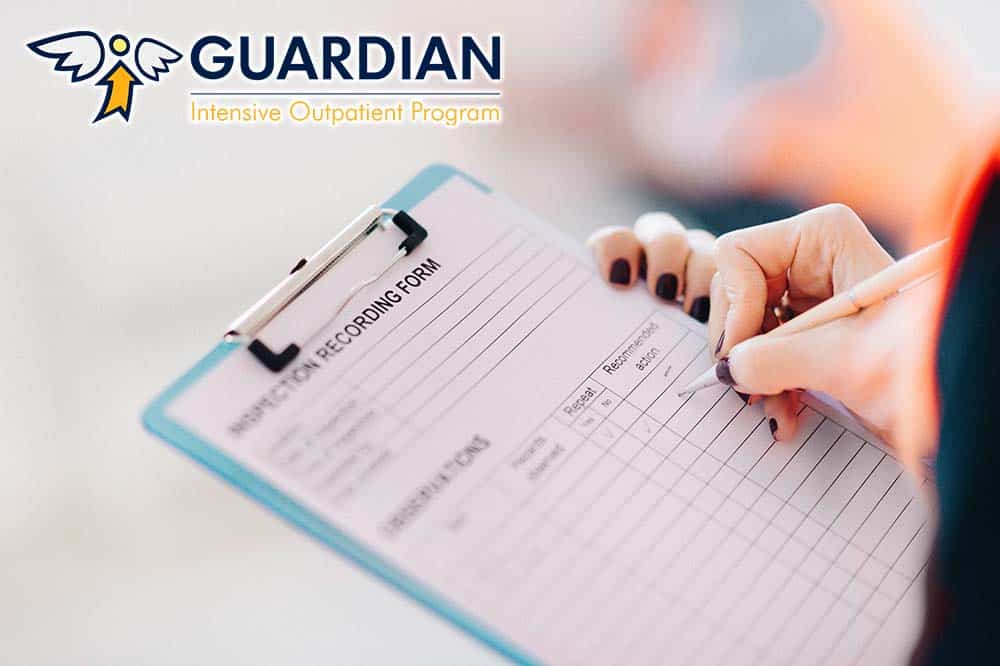Addiction treatment hasn’t always included treatment for mental health disorders. There was a time where treatment for addiction and mental health were kept separate, which meant that people who struggled with both didn’t receive the treatment they deserved. Today, we know that addiction and mental illness don’t occur in a vacuum, which is why evidence-based treatment that addresses both is integral to permanent recovery.
When mental illness and addiction occur at the same time, it is referred to as a co-occurring disorder or dual diagnosis. According to a 2014 National Survey on Drug Use and Health, 7.9 million Americans experience co-occurring disorders. A person diagnosed with a co-occurring disorder had one disorder and developed another disorder that was affected by the development of the first.
So, which occurs first: mental illness or addiction?
What Is a Co-Occurring Disorder?
A co-occurring disorder refers to substance use disorder and mental illness that occur simultaneously. Either disorder can develop first: substance use or mental health. For example, a person who abuses alcohol may develop depression or anxiety as a result of substance use over time. Contrarily, a person with depression or anxiety may abuse alcohol as a form of self-medication.
Mood and personality disorders that commonly co-occur with substance use disorder include:
- Anxiety.
- Bipolar disorder.
- Borderline personality disorder.
- Depression.
- Eating disorders.
- Obsessive-compulsive disorder.
- Panic anxiety disorder.
- Schizophrenia.
People with co-occurring disorders may experience negative consequences on their health because each disorder can significantly impact the other. Drugs and alcohol only cause symptoms of mental health conditions to worsen, regardless of which disorder develops first.
How Does a Co-Occurring Disorder Happen?
The National Institute on Drug Abuse reports that “the high prevalence of comorbidity between substance use disorders and other mental illnesses does not necessarily mean that one caused the other, even if one appeared first.” In other words, co-occurring disorders are correlated, not causal, meaning that they occur with one another–not because of one another.
As NIDA explains, it’s difficult to establish causality between the two because behavioral or emotional issues, known as subclinical symptoms, may not be severe enough for a diagnosis, but subclinical mental health symptoms may lead to drug use. Additionally, a person’s memory of when drug use or addiction began may be inaccurate, making it difficult to determine which disorder came first.
NIDA establishes three pathways to co-occurring disorders:
- Specific risk factors can lead to both mental illness and addiction. These include genetic vulnerabilities, epigenetic influences, brain region functioning, environmental influences, stress, trauma and childhood experiences.
- Mental illness can prompt substance use and addiction. Many people use drugs to self-medicate. While drugs may provide some temporary relief, they also worsen symptoms acutely and in the long-term. Research suggests that bouts of cocaine use can worsen symptoms of bipolar disorder. Changes in brain activity caused by mental illness can increase the likelihood of problematic substance use by intensifying their rewarding effects and reducing awareness of their negative effects. For example, ADHD is associated with neurobiological changes that are associated with greater drug cravings.
- Substance use and addiction can trigger the development of mental illness. Substance use can cause changes in the same regions of the brain that are affected by mental health disorders including anxiety and schizophrenia. It’s also suggested that drug use that precedes mental illness symptoms may also alter the brain structure and function, activating an underlying predisposition to a certain mental health disorder.
Regardless of which condition occurs first, the ensuing phenomenon is the same. Individualized, integrated treatment is the most effective way to overcome addiction and manage mental health symptoms. If you or a loved one is struggling with addiction and mental illness, Guardian IOP can help. Our gender- and age-specific treatment programs are tailored to address the underlying issues that lead to addiction. Permanent recovery is possible. Contact us at 561.274.6133 for more information.

Reviewed for accuracy by:
Anna Marie Barrett LCSW, CYT
Anna earned her Masters of Social Work at Barry University in Miami, FL in 2017 and completed her internship in co-occurring disorders. Anna has a Bachelors of Art in Religious Studies from Naropa University and is a certified yoga and meditation instructor. Anna has received specialized training in somatic counseling with an emphasis on body-centered psychotherapy.




















